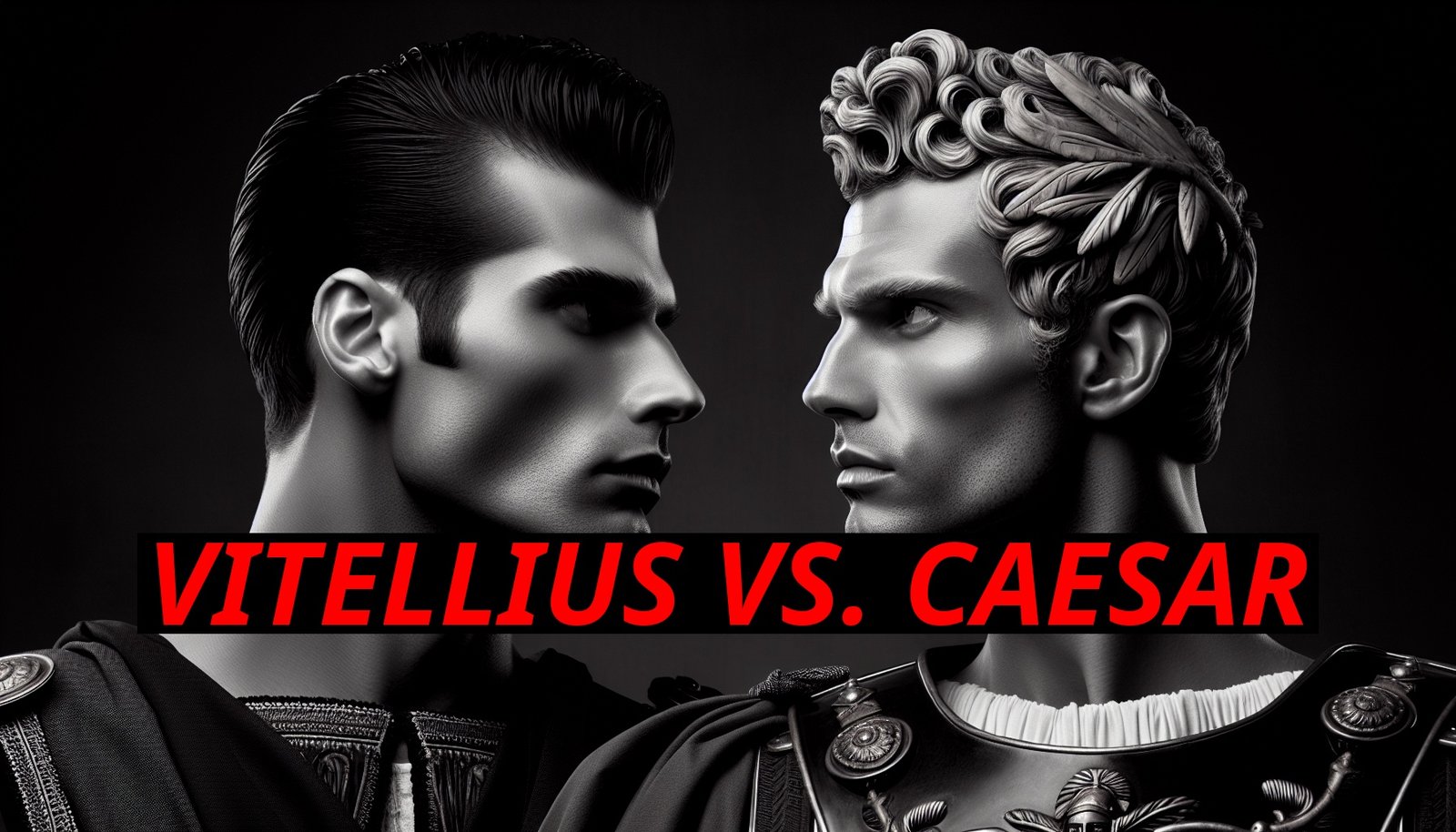In the annals of ancient Rome, two figures stand out when it comes to the question of seizing power: Julius Caesar and Vitellius. But while both sought control of the Roman state, their paths to power could not have been more different. One of these men rose to prominence with the overwhelming support of the people, while the other took power through ambition and force, leaving behind a brief and chaotic reign. So, what exactly makes someone a true power grabber? Let’s dive into the lives of Caesar and Vitellius to explore the key differences in their rise to power and how one left a lasting legacy while the other faded into obscurity.
Julius Caesar’s name is often tied to the idea of dictatorship, with some labeling him a power-hungry leader who took control of Rome by force. However, that’s only part of the story. By the time Caesar crossed the Rubicon in 49 BCE, his actions were not those of a man bent on personal gain alone. Caesar had spent years winning the loyalty of both the Roman people and his legions, not just through military victories, but through reforms that directly addressed the needs of the common people.
Caesar wasn’t merely a skilled general; he was a leader who genuinely sought to make life better for Rome’s citizens. His reforms, such as redistributing land to veterans and providing relief from crippling debt, made him incredibly popular among the masses. His rise to power wasn’t fueled by sheer ambition, but by a genuine connection with the people who saw him as a champion of their cause. When Caesar marched on Rome, he did so not as an enemy of the state, but as a leader who had the support of his soldiers and a large portion of the Roman populace behind him.
In contrast to Caesar’s rise, Vitellius’ path to power is a textbook example of a true power grab. In 69 CE, during the Year of the Four Emperors, Vitellius saw an opportunity in the political chaos following Emperor Nero’s death. Unlike Caesar, Vitellius had no broad base of popular support. He wasn’t a reformer with a vision for Rome’s future—he was a general driven purely by ambition. His only claim to power came from the loyalty of his legions, whom he used to march on Rome and topple the reigning emperor.
Vitellius wasn’t interested in addressing the needs of the people or stabilizing the empire. His reign, though brief, was marked by excess, greed, and a complete disregard for the welfare of the Roman state. He relied solely on military force to maintain his position, and unlike Caesar, he never managed to secure the backing of the Roman masses. Vitellius’ rise to power lacked legitimacy from the start, and without any real support from the people, his downfall was inevitable.
The stark contrast between Caesar and Vitellius becomes clear when you examine the concept of legitimacy. Julius Caesar’s rise, while controversial, had a certain level of legitimacy that came from the backing of the Roman people. He didn’t seize power by force alone—he rose because he was popular and because his soldiers and supporters believed in his vision for Rome. Caesar’s reforms may have threatened the Senate, but they resonated with the people, and that popular support provided a strong foundation for his leadership.
Vitellius, on the other hand, had no such legitimacy. His claim to the throne was based entirely on the strength of his legions, and his lack of popular support made his reign unstable from the very beginning. The Roman people didn’t rally behind him, and his brief time as emperor did nothing to win their loyalty. When a stronger contender for power emerged, Vitellius was swiftly overthrown. His fall serves as a reminder that ambition alone cannot secure a lasting legacy without the support of the people.
In comparing Caesar and Vitellius, we also see the consequences of their different approaches to power. Julius Caesar’s rise fundamentally reshaped the Roman state. His leadership and reforms laid the groundwork for Rome’s transition from Republic to Empire, and his influence on history remains undeniable. While his methods were criticized by some, Caesar was ultimately a leader who represented the will of the people during a time when the Roman Republic was increasingly disconnected from the needs of its citizens.
Vitellius, in contrast, left behind no lasting legacy. His short-lived rule was marked by instability, and he is largely forgotten today, overshadowed by more capable leaders. His story serves as a cautionary tale of what happens when power is seized through brute force without any broader support or legitimacy. Vitellius didn’t inspire loyalty, and his reign ended as abruptly as it began, leaving little to remember him by.
In the end, the debate over what makes a true power grabber is best illustrated through the lives of Julius Caesar and Vitellius. While both men sought control of Rome, their methods and their legacies couldn’t be more different. Caesar, despite being called a dictator, rose through popular support and addressed the needs of the Roman people. His rise was controversial, but it was grounded in legitimacy and a genuine connection to the masses. Vitellius, on the other hand, was a power grabber in the truest sense of the word. His rise was based on ambition and military force, with no concern for the people or the stability of the empire.
So, was Julius Caesar a power grabber? In some ways, yes—but his power came from the people, not despite them. Vitellius, on the other hand, embodies the worst kind of power grabber: a leader who took control for his own benefit without offering anything in return. Caesar’s legacy remains monumental, while Vitellius’ serves as a warning of the dangers of ambition without legitimacy. If you’re interested in exploring more historical comparisons and insights, be sure to subscribe and stay tuned for more deep dives into the fascinating world of history!













